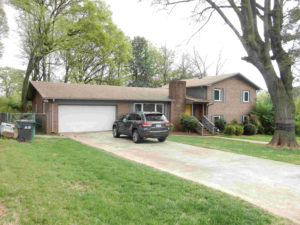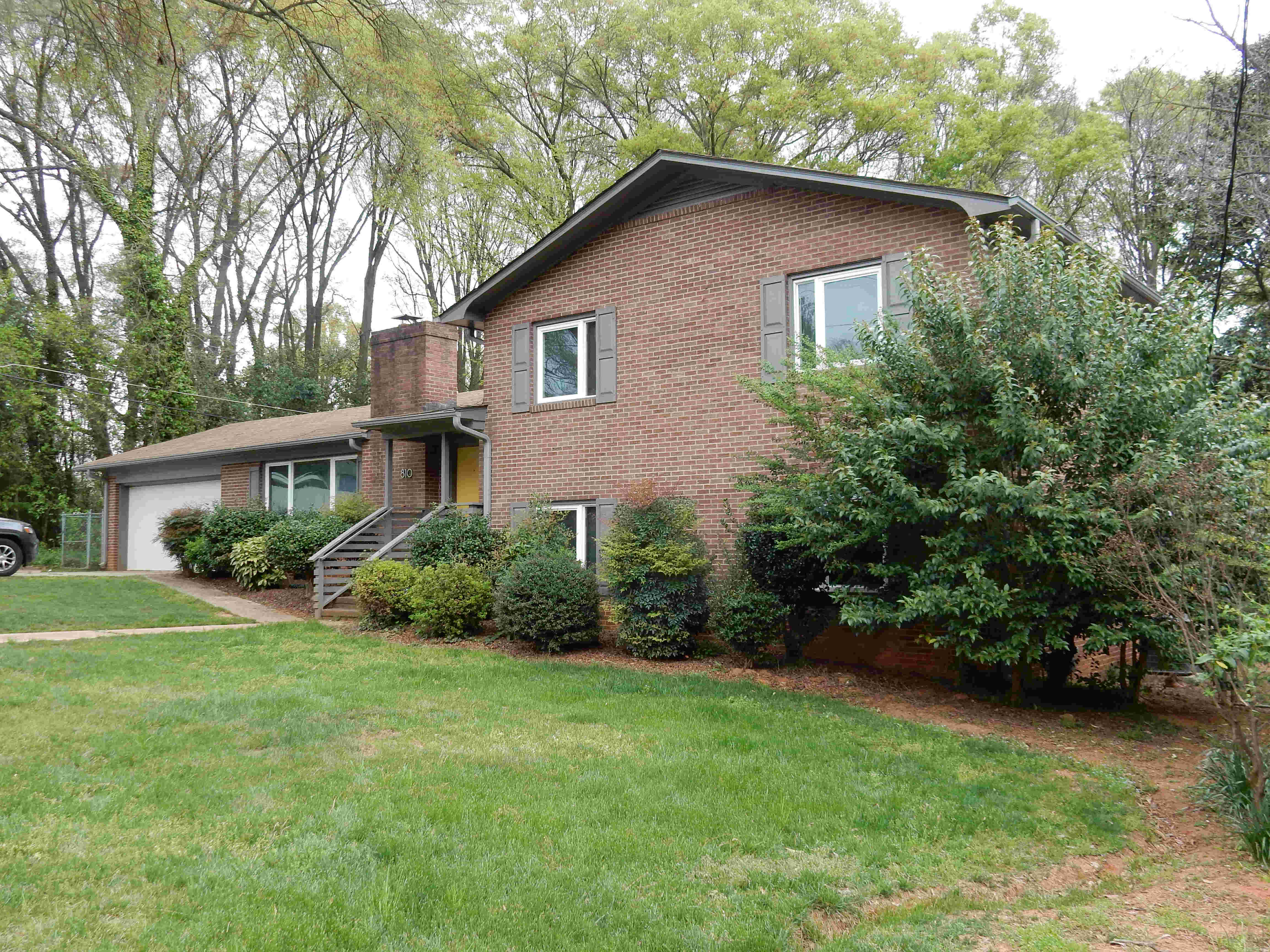 Built in 1963-64 for Rev. J.T. Jones, an official with the Presbyterian Church who assisted rural churches throughout the Southeast, and his wife Ione Jones, a long-time beloved professor of English at Johnson C. Smith University. The couple’s grown son J. Charles Jones was one of the region’s foremost Civil Rights leaders, who co-led Charlotte’s Sit-Ins in 1960 and went on to national Civil Rights activism with the Student Nonviolent Coordinating Council 1960 – 1965.
Built in 1963-64 for Rev. J.T. Jones, an official with the Presbyterian Church who assisted rural churches throughout the Southeast, and his wife Ione Jones, a long-time beloved professor of English at Johnson C. Smith University. The couple’s grown son J. Charles Jones was one of the region’s foremost Civil Rights leaders, who co-led Charlotte’s Sit-Ins in 1960 and went on to national Civil Rights activism with the Student Nonviolent Coordinating Council 1960 – 1965.
* * *
Rev. Joseph Thomas Jones (2.10.1902 – 8.28.1983) grew up about an hour south of Charlotte in the hamlet of McConnells, York County, South Carolina, son of a minister. He attended Brainerd Institute in Chester, South Carolina. It was one of the network of private academies created by black Presbyterians for the “best and brightest” youth during the era of segregation, a time when public schools offered few if any high school level classes for African Americans. The academies funneled their most promising graduates to the region’s premier black Presbyterian university, Johnson C. Smith in Charlotte. Jones earned a Bachelors degree, then stayed on to gain a Theology degree from JCSU’s Theological Seminary.
He was ordained a minister in 1925, preaching initially in the Fairfield-McClellan Presbytery of South Carolina, but soon moved into a leadership role in the denomination’s administration. His funeral program picks up the story:
“From 1927 until his retirement in 1973, he served the United Presbyterian Church, U.S.A. as a National Sunday School Missionary and Mobile Minister…. [He] held many offices on the national, regional and local level, including the president of the Appalachian Mountain Ministry, Chairman of the Ministerial Relations Committee of the Presbytery, Supervisor of the Sunday School Missionary work in the Southeastern United States with the additional states of Oklahoma, Texas and Arkansas, and was circulation manager of The New Advance, a Presbyterian periodical.” Ultimately he became Assistant Executive of the Atlantic Synod — the vast territory of the Presbyterian Church stretching from South Carolina through Georgia and Florida — “an office he held for many years before his retirement.”
“His great love was music. Because of his expertise in directing group singing and his deep understanding of the meaning and the beauty of the Negro spiritual, the national Church sent him all over the United States to teach and direct the hymns, recreational music, pep songs and spirituals, particularly in white summer conferences, camps and recreational workshops. [This inter-racial work was part of the Church’s push for] ‘An Integrated Church in an Integrated Society.’ He published a book of spirituals, Great Day, which he used widely in his music ministry. ‘Joe Jones,’ as he was affectionally called, led the singing at the General Assembly of the Presbyterian Church on several occasions.”
Rev. Jones was an 32nd degree Mason, that organization’s highest level, and a member of Charlotte’s chapter of the Omega Psi Phi fraternity where he sang with the Omega Ensemble. Even though church filled his working hours, he also took an active role at Memorial Presbyterian, the neighborhood church on Beatties Ford Road that many McCrorey Heights residents attended. He sang in the People’s Choir and served on the Worship Committee.
* * *
In 1932, while still based in Chester, South Carolina, Rev. J.T. Jones married Ione Elston (6.15.1909 – 6.1.1998). Born in Anderson, Alabama, she came to the Carolinas as a student at Barber-Scotia College in Concord, a sister institution of JCSU. She and Rev. Jones would move to Charlotte in 1947, where Ione would teach initially at Second Ward High School, then at Johnson C. Smith University. Her funeral program detailed her journey:
“Mrs. Jones grew up in an atmosphere of the glory of God and in a home that valued the love of learning and a formal education. That love of education would be central to her long and distinguished life.” After graduating Summa Cum Laude at Barber-Scotia, she did post-graduate work at JSCU and Howard University, and eventually earned a Masters in English at University of Wisconsin.
“Mrs. Jones taught high school for most of her adult life, including Finley High School in Chester, South Carolina, elementary school in a one-room school house in Lauris, South Carolina, and Second Ward High in Charlotte, North Carolina. Her greatest joy was teaching in the English Department at Johnson C. Smith University for more than fifteen years,” where she helped students launch The Treewell, a monthly creative poetry magazine.
“[A]fter a long day of teaching, Mrs. Jones would gather neighborhood children two or three times a week at her church, Memorial Presbyterian.” She worked in every way to “encourage them to use their talents to enlighten themselves and others,” from forming a youth choir, to driving a group to Pennsylvania’s renowned Lincoln University to explore college options.
* * *
Rev. and Mrs. Jones imparted their strong values in three children, most notably J. Charles Jones. As a theological student at JCSU in 1960, he became the spokesperson and one of three-co-organizers who led Charlotte’s sit-ins. Success there pulled him into the group that formed the Student Nonviolent Coordinating Committee (SNCC). He participated in the Freedom Ride, went to prison during Rock Hill’s “Jail No Bail,” sit-ins, registered voters in Mississippi, and helped organize the Albany Movement to desegregate Albany, Georgia. After stepping back from the front-lines about 1965, he became an attorney working with African American clients in Charlotte.
Noted Ione Jones funeral program: “During the rough days of the Social revolution in the ‘sixties, Mrs. Jones stood behind her son Charles and others who courageously demanded equal rights as citizens of the United States — which resulted in accommodations at lunch counters and other areas in Charlotte, North Carolina, being open to all. In creative poetry she leaves us a legacy of that period.”

